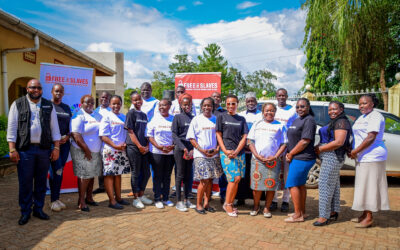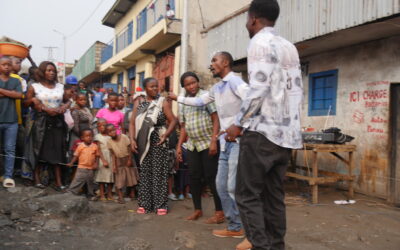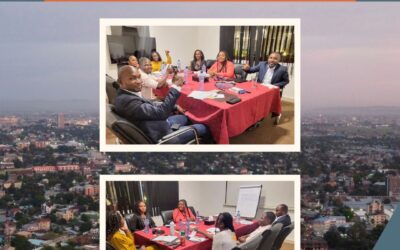The Democratic Republic of Congo (DRC) has been persistently plagued by numerous socio-economic challenges. Forced labor, modern slavery, and human trafficking are all prominent in the country. Recently, the DRC has taken steps forward, signaling its intent to address these grave issues and to involve those who understand them the best, survivors, in the planning, implementation, and evaluation of government programs.
In an inspiring move to rectify the hurdles that obstruct the path to a liberated Congo, survivors from various provinces, including Lualaba, South Kivu, Haut Katanga, North Kivu, and Kinshasa, have been included in the development of a tangible roadmap aimed at abolishing forced labor and associated malpractices.
From the 12th to the 13th of September, a significant training was held with survivors in Kinshasa, and a pivotal government workshop was conducted at the Ministry of Labor on the 15th. The survivors, 3 women and 2 men representing different provinces were not just spectators but active participants, vocalizing their priorities and insights based on the expertise gained from their lived experiences.
The survivors placed critical points on the table, suggesting top priorities that emphasize the vital aspects of psychological support and survivor engagement in awareness-raising initiatives. Key elements of their recommendations were to:
- Ensure that psychological support for victims and survivors is paramount, recognizing the lifetime impact of their traumas.
- Actively engage survivors in initiatives aiming to raise awareness and mobilize communities against forced labor, modern slavery, and human trafficking.
- Amplify the capacity of survivors to contribute to the prevention and protection mechanisms in place for victims and communities under threat.
- Safeguard the vulnerable, especially children, from forced labor. This included protective actions, integrative strategies, and extending the child labor monitoring committee’s oversight to various sectors, such as fishing and agriculture.
An emphasis was also laid on the penal code, with a call to include offenses related to modern slavery and ensuring justice for survivors by holding corporate entities accountable for engaging in forced and child labor practices.
Moreover, the survivors demanded:
- Comprehensive research to dismantle trafficker networks.
- Education and sensitization of families on protecting domestic workers.
- Enforcing laws against sexual violence to eradicate practices like forced marriage and genital mutilation.
- Organization and regulation of sectors prone to accommodate modern slavery, such as mining, construction, and agriculture.
The workshop and subsequent activities highlighted a collaborative spirit between the survivors, NGOs like FTS (Free the Slaves), and the governmental core committee, represented by the Ministry of Labor, the Ministry of Mining, and the Ministry of Social Protection.
Valuable recommendations and priorities proposed by survivors were not only welcomed but were also acknowledged as vital, practical, and tangible. The government exhibited readiness to recalibrate their current roadmap, agreeing unanimously to incorporate these survivor-informed priorities. Additionally, a commitment was seen in a motion to modify the current decree of the national task force for Alliance 8.7’s roadmap, ensuring the inclusion of a representative of survivors.
Additionally, the DRC government requested that Free the Slaves provide technical assistance in the following areas:
- To help lead some activities on survivor engagement at the provincial level and help build the capacity of the government structures on survivor engagement.
- To support the implementation of the roadmap, especially the survivor engagement in mobilization and sensitization in local communities and other aspects of the roadmap.
While situations underscoring issues related to child labor, modern slavery, and human trafficking in the DRC have been grave and multifaceted, the unity and forward stride demonstrated by survivors, NGOs, and government entities exhibit a powerful collective step toward liberation.
The combination of lived experiences with pragmatic strategies delineates a blueprint that doesn’t just aim to eradicate modern slavery but also seeks to construct a future where the survivors are not merely seen but are heard, acknowledged, and instrumental in sculpting a future devoid of the shackles of forced labor and human trafficking.
With continued collective efforts, supportive international alliances, and adherence to a roadmap that is deeply embedded in the real, often painful experiences of survivors, the journey towards eradicating forced labor, modern slavery, and human trafficking in the DRC is not only necessary but absolutely attainable.
The final draft of the new roadmap, enriched with the embedded experiences and insights of survivors, will be reviewed by all involved parties before being presented for official endorsement, ensuring that each step is a stride towards genuine change, comprehensive protection, and, most importantly, an unequivocal stand against modern slavery in all its forms.




